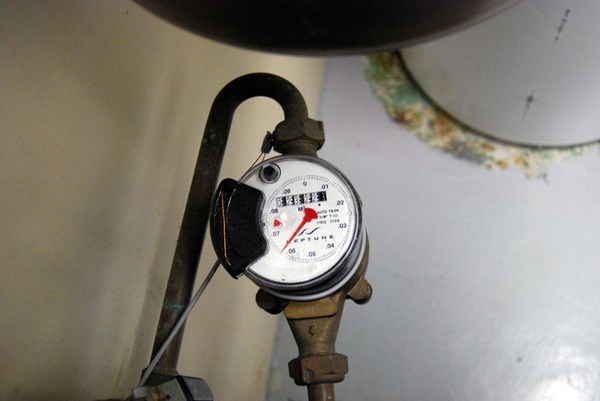A special council meeting about the city’s water utility Jan. 10 resulted in a motion to develop an appeals process for customers who believe they have been charged an inaccurate amount for consumption.
There was also discussion of tweaks to the water billing process, such as moving from quarterly billing to monthly billing so that people with unknown leaks avoid sticker shock when they discover their toilet has been running fro 90 days.
Numerous other issues were also covered during the meeting, including how much of the treated water doesn’t make it to customers’ homes and businesses and whether water main replacements are resulting in fewer water breaks.
The meeting was called by Coun. Jeff Fountain with support from councillors Barden McMurdo, Duncan Wong and Andre Proulx to address concerns council has heard from residents as well as questions posed by some of the councillors.
Several of those questions, such as whether monthly billing is possible, could be answered by reading the bylaw, but city manager Anthony McInnis said there are factors to consider, such as additional staff costs associated with more frequent bills.
“They bylaw provides options for month, bimonthly or quarterly billing,” said McInnis. “Meter reading and billing can be increased, just with the understanding that there’ll be increased demands on staff time.”
Though collecting meter readings is all but automatic – it takes about one day to drive around the city and wirelessly obtain the data – those numbers then have to be input into the billing system.
Because the monthly billing option is already included in the bylaw, council needs merely to direct city administration to begin more frequent billing if that’s their wish.
Several councillors expressed beliefs that monthly billing was a possible or preferable option to sending bills out every three months.
“When there is a leak, it tends to go too far and the bill is quite high and many [customers] can’t afford it,” said Proulx. “That’s my biggest concern.”
For Fountain, billing inconsistencies and the way they are currently addressed are high on the list of issues.
“I’ve had a number of members of the community come to me with billing inconsistencies from the City of Thompson,” he said. “Responses back to those individuals were unprofessional, to say the least.”
As the meeting wound down, council approved his motion directing administration to look at developing a complaint-based appeal system, which would have to be written into the bylaw to take effect.
Council heard that about 40 per cent of the treated water produced by the water treatment plant does not flow through meters but is used for firefighting, hydrant flushing or lost to water breaks. The only way to reduce that amount, McInnis said, is by replacing aging water mains, as has already been done in some areas of town and which is slated to be accomplished to a greater degree over the next five years, with help from a federal-provincial infrastructure grant.
“Until we replace that infrastructure, they’ll continue at that rate,” he said.
In light of the poor maintenance practices that led to the Norplex Pool being deemed unsafe for use, McMurdo asked if there was a preventative maintenance schedule in place for the water treatment plant, taken over from Vale five years ago, and whether it was being adhered to, referencing suggestions he has heard that it is not.
“Is there evidence that the preventative maintenance program that was developed and maintained by Vale is being conducted and carried out by trained and qualified personnel of the city?” he asked.
McInnis said he has been assured the maintenance is being done and that any concerns that it is not should be forwarded to him to follow up on.
“It is an aging piece of infrastructure,” he said, and the city would like to upgrade it by adding a backup electrical power source in case of a power outage.
The biggest difficulty with running the treatment plant, McInnis said, tends to be staffing. Water treatment plant operator qualifications are highly sought across the country.
“It’s hard to keep operators here,” McInnis said.
Fountain asked if it is possible to go back to a flat-fee billing system instead of basing bills of consumption as measured by meters. The city manager said he didn’t believe it was, as a number of grants the city received to construct its new sewage treatment plant were contingent on bringing in metered water billing.
Any changes to the water utility are up to council to decide on.
“It will be up to us to set policy if we want to see different than what is already in place going forward,” said Mayor Colleen Smook.




